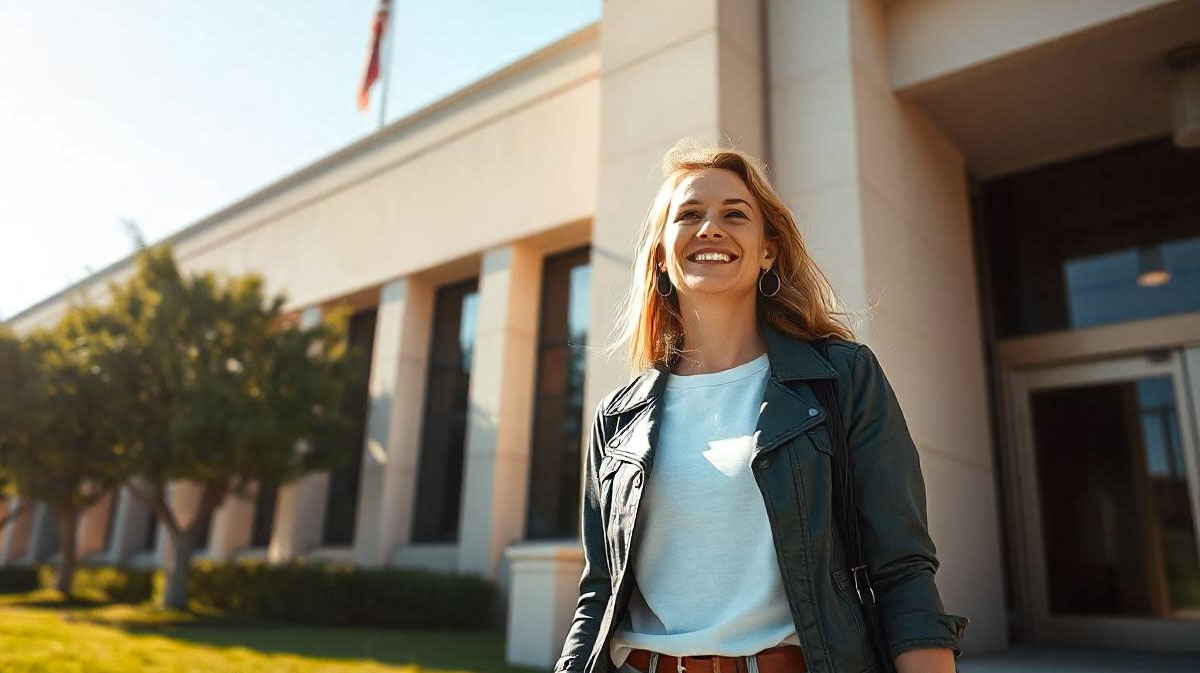Debt collectors are governed by the Fair Debt Collection Practices Act, but original creditors are not. When you file for bankruptcy, the U.S. Bankruptcy Code prohibits creditors of discharged debts from demanding payment.
But when a creditor tries to collect a debt under an assumed name, is it considered to be a debt collector and governed by the FDCPA?
And if the consumer files for bankruptcy, does the U.S. Bankruptcy Code reign supreme over the entirety of the FDCPA or merely those portions that establish penalties for demanding payment?
In Miraglia v. Pennsylvania Higher Education Assistance Agency (PHEAA), the U.S. District Court for the Southern District of California addressed significant issues surrounding student loan debt collection after bankruptcy. The decision clarifies boundaries for debt collectors, particularly regarding the Fair Debt Collection Practices Act (FDCPA) and post-bankruptcy conduct.
For those with student loans or other debts discharged in bankruptcy, this case is a reminder of the legal protections in place against unwanted collection practices.
Case Background: Bankruptcy Discharge and Continued Debt Collection
Dominic Miraglia filed for Chapter 7 bankruptcy in 2022, listing PHEAA as a creditor due to outstanding student loan debt. After his debt was discharged in bankruptcy, Miraglia alleged that PHEAA continued efforts at debt collection post-bankruptcy discharge, including making phone calls and failing to update credit reporting agencies to reflect the discharge.
When PHEAA disregarded his cease-and-desist request, Miraglia filed a suit under several consumer protection laws, including the FDCPA and California’s Rosenthal Fair Debt Collection Practices Act.
PHEAA argued that, as a loan servicer, it did not meet the FDCPA’s definition of a “debt collector,” and that Miraglia’s claims related to the bankruptcy discharge should be barred. This defense hinged on Ninth Circuit precedent, specifically the Walls v. Wells Fargo Bank decision, which limits post-discharge claims under the FDCPA.
Key Issues in Debt Collection After Bankruptcy
FDCPA’s “Debt Collector” Definition and Student Loan Servicers
A pivotal question in this case was whether PHEAA qualified as a “debt collector” under the FDCPA, a designation carrying strict limitations on post-bankruptcy debt collection. Although PHEAA argued that it was exempt as a loan servicer, the court found otherwise. Judge Marilyn L. Huff noted that PHEAA’s practice of collecting debts under the name “American Education Services” implied third-party involvement, fulfilling the FDCPA’s “debt collector” definition:
A creditor uses a name other than its own when it uses a name that implies that a third party is involved in collecting its debts, ‘pretends to be someone else’ or ‘uses a pseudonym or alias’ (Miraglia, quoting Maguire v. Citicorp Retail Servs., Inc.)
This ruling is significant for consumers dealing with debt collection after bankruptcy, as it affirms that creditors using alternate names may be treated as debt collectors subject to the FDCPA, even when dealing with student loan debt.
Bankruptcy Discharge and FDCPA Claims: Allowable Claims Post-Discharge
Judge Huff evaluated PHEAA’s reliance on the Walls decision, which restricts FDCPA claims challenging bankruptcy discharge orders. The court ultimately dismissed Miraglia’s claims specifically tied to the discharge order itself but allowed claims related to PHEAA’s continued contact and harassment after Miraglia requested communications to stop. This distinction reaffirms that debt collection post-bankruptcy discharge must respect consumers’ rights, even after a discharge has been granted.
If the question of ‘whether an unfair debt collection practice occurred does not depend on issuance or enforcement of the discharge order,’ the FDCPA and Rosenthal Act claims may proceed” (Miraglia, citing Brown v. Transworld Sys., Inc.).
This decision provides guidance on the types of FDCPA and Rosenthal Act claims that remain actionable after a discharge. In cases like Miraglia, where harassment persists beyond discharge, consumer protections against debt collection after bankruptcy are enforced.
Other Noteworthy Findings: FCRA and Intrusion Claims
Alongside the FDCPA and Rosenthal Act claims, Judge Huff addressed Miraglia’s Fair Credit Reporting Act (FCRA) claim, which was dismissed because Miraglia had not formally disputed the credit report with an agency, a required step under the FCRA. This outcome highlights the procedural steps needed for an FCRA claim to proceed and emphasizes that a direct dispute with a credit reporting agency is essential.
Additionally, Miraglia alleged intrusion upon seclusion due to PHEAA’s persistent and unwanted communications. PHEAA argued that the California common interest privilege under Civil Code § 47(c) shielded it from liability; however, Judge Huff dismissed this defense. The court noted that the relationship between PHEAA and Miraglia was adversarial post-discharge, not aligned in a “common interest.”
This ruling reinforces that collection agencies cannot misuse legal privileges to shield aggressive post-bankruptcy debt collection.
Implications for Consumers Facing Debt Collection Post-Bankruptcy Discharge
The Miraglia decision has key takeaways for those facing debt collection after bankruptcy, especially with student loan obligations. Notably:
- Using Different Names: A creditor acting under a different name to collect student loan debt can be considered a “debt collector” under the FDCPA, carrying specific legal obligations.
- Limited Scope of Bankruptcy Discharge Protections: While bankruptcy law preempts FDCPA claims directly challenging discharge orders, creditors are still accountable for conduct post-discharge that may violate federal or state debt collection laws.
- California’s Common Interest Privilege Limitations: This case sets limits on how the common interest privilege may be applied, particularly in debt collection, where relationships between creditors and debtors are not mutually beneficial.
For consumers, this ruling reiterates that discharge in bankruptcy does not negate protections against harassment, and those experiencing student loan debt collection after bankruptcy have legal recourse if collectors disregard cease communication requests.
Strengthening Consumer Protections in Debt Collection After Bankruptcy
The Miraglia case is a landmark decision that defines boundaries for debt collectors in debt collection post-bankruptcy discharge. It clarifies that although bankruptcy discharge can limit certain FDCPA claims, debt collectors are still bound by post-discharge laws prohibiting harassment and unwelcome communication.
For student loan borrowers, this case underscores that debt servicers must carefully navigate collection practices, respecting both state and federal protections.
As debt collection after bankruptcy becomes more scrutinized, Miraglia serves as a critical precedent, reminding debt collectors and servicers that compliance is paramount.
ABOUT THE AUTHOR
Meet Jay
 Since I became a lawyer in 1995, I’ve represented people with problems involving student loans, consumer debts, mortgage foreclosures, collection abuse, and credit reports. Instead of gatekeeping my knowledge, I make as much of it available at no cost as possible on this site and my other social channels. I wrote every word on this site.
Since I became a lawyer in 1995, I’ve represented people with problems involving student loans, consumer debts, mortgage foreclosures, collection abuse, and credit reports. Instead of gatekeeping my knowledge, I make as much of it available at no cost as possible on this site and my other social channels. I wrote every word on this site.
I’ve helped thousands of federal and private student loan borrowers lower their payments, negotiate settlements, get out of default and qualify for loan forgiveness programs. My practice includes defending student loan lawsuits filed by companies such as Navient and National Collegiate Student Loan Trust. In addition, I’ve represented thousands of individuals and families in Chapter 7 and Chapter 13 bankruptcy cases. I currently focus my law practice solely on student loan issues.
I played a central role in developing the Student Loan Law Workshop, where I helped to train over 350 lawyers on how to help people with student loan problems. I’ve spoken at events held by the National Association of Consumer Bankruptcy Attorneys, National Association of Consumer Advocates, and bar associations around the country. National news outlets regularly look to me for my insights on student loans and consumer debt issues.
I’m licensed to practice law in New York and California and advise federal student loan borrowers nationwide.
continue reading





